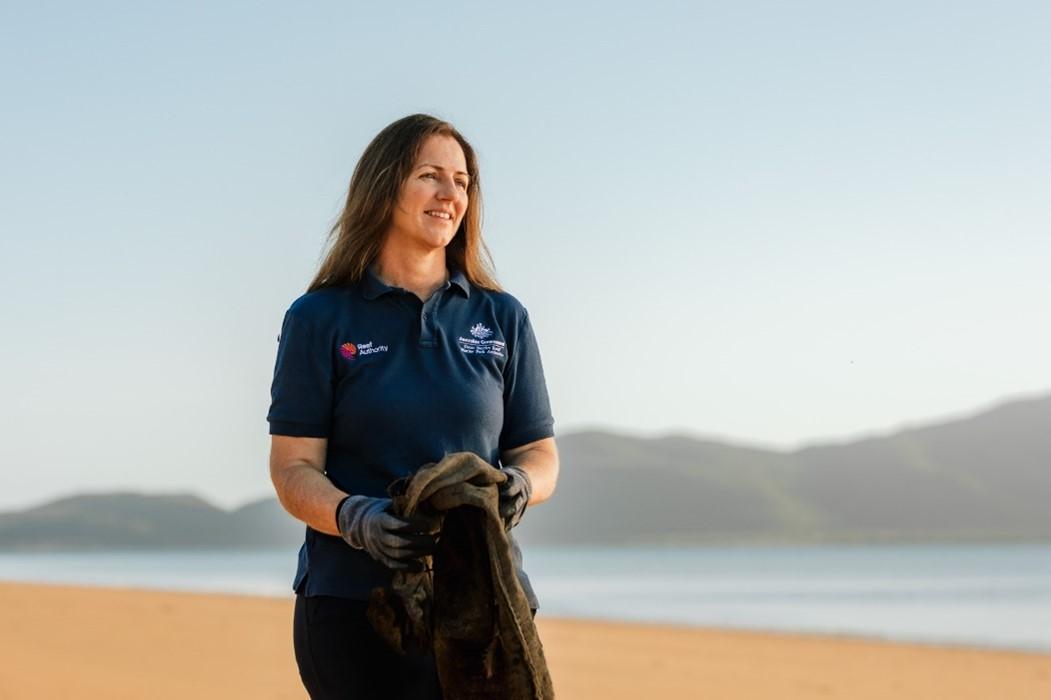Sydney business provides uniforms that reinforce environmental sustainability outcomes
5 September 2024
Sydney-based textiles manufacturer, Citizen Wolf, recently supplied the Great Barrier Reef Marine Park Authority (the Reef Authority) with new uniforms that met best practice sustainable procurement objectives. Environmental sustainability is a core value for money consideration under the Commonwealth Procurement Rules.
According to Seamless, the National Clothing Product Stewardship Scheme, every Australian, on average, buys 56 items of clothing each year. Most are made from non-renewable and environmentally problematic materials, sometimes containing unsafe chemicals[1].
Citizen Wolf manufactures clothing from their factory in Sydney, using technology that reduces waste. Citizen Wolf also offers a free take-back scheme that recycles old uniforms into new fabrics, creating a circular system that reduces landfill impacts.
Citizen Wolf is Ethical Clothing Australia (ECA) accredited and also voluntarily provides a modern slavery statement in line with the Modern Slavery Act, acknowledging the importance on taking action on modern slavery in the textile industry.
Encouraging environmental sustainability
The Reef Authority is responsible for managing the Great Barrier Reef. As such, one of its corporate values is to reduce its impact on the environment. In recent years, the Reef Authority has been on a journey of sustainability and was determined to reflect this corporate value in its procurement of new uniforms for staff. The Reef Authority had a particular interest in reducing microplastics in the items included in its corporate clothing line. Microplastics have been shown to be polluting the Great Barrier Reef, and research shows that 35 per cent of global microplastics come from textiles.
The Reef Authority considered environmental sustainability throughout the procurement and conducted significant background research to determine suitable sustainability criteria for the tender documents. Methods of manufacturing, impacts of washing and wearing the garments and recycling at end of life were all examined. “The sustainable and ethically produced uniforms sourced from Citizen Wolf have resulted in lower emissions and more responsible procurement for Reef Authority Corporate apparel. Citizen Wolf has worked collaboratively with the Reef Authority to develop case studies and educational videos for sustainability, which has resulted in far reaching benefits beyond the main aims of the procurement”.
Citizen Wolf was approached directly alongside other suppliers, through a limited tender Approach to Market by the Reef Authority. This was the first time Citizen Wolf had tendered for Australian Government work. “Citizen Wolf was created to provide a sustainable and ethical option for fashion consumers, and to help businesses that need uniforms with their ESG targets. Working with the government has opened new opportunities we hadn’t previously considered.” – Eric Phu (Co-founder, Citizen Wolf)
Citizen Wolf was ultimately successful in securing the contract, and Reef Authority staff pride themselves in wearing a garment that aligns with the values of the organisation, and minimises impact on the environment.
Procuring a sustainable future through engaging a local manufacturer
“Working with the Reef Authority to create the most sustainable uniforms possible has been a great experience, both in terms of the working relationship, but also in supporting their mission to protect the world’s greatest marine ecosystem” – Eric Phu (Co-founder, Citizen Wolf). Citizen Wolf has also been able to connect with another local supplier to process material waste from their manufacturing process into useful resources. This has enabled the Reef Authority to demonstrate completely circular manufacturing techniques for its new office attire.
Are you interested in selling to the Australian Government? Continue to navigate this site for practical tips or visit AusTender for information on current or upcoming opportunities.
[1] Seamless - Scheme Design Report “Transforming how clothing is made, used, reused, and recycled in Australia to create circularity by 2030” (ausfashioncouncil.com)
